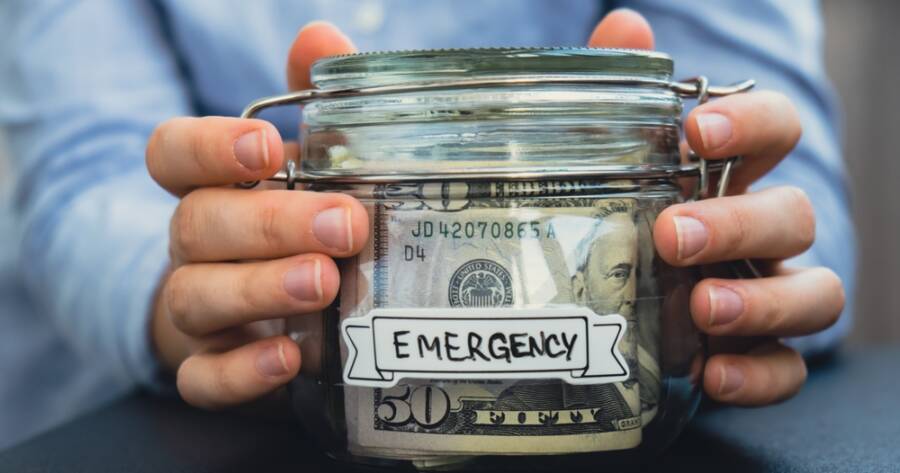Financial advice often focuses on investing, saving for retirement, or paying down debt — but one of the most powerful financial tools is also one of the simplest: an emergency fund. It’s not glamorous, but it’s essential. A well-built emergency fund doesn’t just protect against unexpected bills; it provides stability, peace of mind, and long-term financial resilience. Over a lifetime, the security it offers can save far more than it costs to maintain.
1. What an Emergency Fund Really Does
An emergency fund is a financial buffer designed to cover unexpected expenses — medical bills, car repairs, job loss, or any unplanned event that could disrupt your income. While many people think of it as a short-term cushion, its value extends far beyond immediate crises.
At its core, an emergency fund buys time and choice. It allows you to handle a setback without resorting to credit cards or high-interest loans. This prevents financial emergencies from compounding into debt traps. More importantly, it gives you space to make thoughtful decisions rather than reactive ones.
For example, losing a job is stressful enough. Having three to six months of expenses saved allows you to search for the right next position rather than accepting the first available offer out of panic. That breathing room has both financial and psychological benefits — and it often leads to better long-term outcomes.
2. The Compounding Effect of Financial Stability
While an emergency fund doesn’t grow like an investment portfolio, it produces indirect returns through stability. By avoiding high-interest debt, you protect your income from being consumed by finance charges. Over decades, those avoided costs compound in your favor.
Consider this: every time you handle an unexpected expense with cash instead of credit, you’re effectively earning the interest you would have paid. If an emergency fund prevents just one major loan or extended credit card balance, it can save hundreds — even thousands — of dollars in the long run.
There’s also a hidden compounding effect on confidence. When you know you can handle financial shocks, you take smarter risks — like pursuing a new career opportunity, starting a business, or investing consistently without fear of wiping out your savings. This emotional stability often leads to better financial decisions, which further strengthens your long-term position.
An emergency fund doesn’t just protect your money — it improves how you manage it.
3. Designing a Fund That Fits Your Life
The size and structure of an emergency fund depend on individual needs, but the principle is the same for everyone: accessibility matters more than returns. An emergency fund isn’t an investment account — it’s insurance against uncertainty.
A practical strategy is to keep funds in a separate, interest-bearing savings account. This maintains liquidity while still earning modest growth. The goal is to make the money easy to access when needed but slightly inconvenient to spend impulsively.
If you’re just starting, focus on progress rather than perfection. Saving even a small portion of your income regularly — such as $25 or $50 per paycheck — builds momentum. Consistency is more important than speed. Over time, those small deposits accumulate, and the habit of saving becomes automatic.
It’s also smart to revisit your emergency fund periodically. Major life changes — like moving, starting a family, or buying a home — alter your financial landscape. Adjust your fund to match new realities. A flexible system ensures that your safety net evolves alongside your life.
4. Protecting Future Investments
One of the most overlooked benefits of an emergency fund is how it safeguards your investment and retirement strategies. Without a cash buffer, many people end up pulling money from long-term accounts when emergencies strike. These withdrawals can lead to taxes, penalties, and lost compound growth — all of which undermine future goals.
Having a dedicated emergency fund prevents this. It acts as a firewall between short-term disruptions and long-term plans. You can ride out temporary challenges without touching investment assets meant to grow over decades.
In this sense, an emergency fund enhances the performance of your overall financial system. It reduces the need for liquidating assets at inopportune times — such as during market downturns — and allows your investments to recover and grow uninterrupted. It’s a quiet but powerful way to protect your future wealth.
5. The Emotional ROI of Financial Preparedness
Beyond the numbers, the emotional return on an emergency fund may be its greatest value. Financial stress takes a measurable toll on health, relationships, and decision-making. Knowing you have a safety net reduces anxiety and improves overall well-being.
This peace of mind changes your approach to money. Instead of reacting out of fear, you make proactive, long-term choices. You’re less likely to chase risky investments, fall for high-pressure sales tactics, or live paycheck to paycheck. The fund becomes more than just savings — it’s a symbol of control and self-trust.
Over time, that mindset shift has profound ripple effects. It encourages responsibility, planning, and resilience — traits that benefit every part of life, not just finances.
Stability That Pays for Itself
An emergency fund might not earn headlines or deliver dramatic returns, but its lifetime value is undeniable. It shields you from financial shocks, preserves your investments, and supports confident decision-making.
More importantly, it creates a foundation for growth. With security in place, you’re free to focus on goals that build wealth rather than just preserve it. The true payoff of an emergency fund isn’t measured in dollars — it’s measured in freedom. By preparing for the unexpected, you give your future self the stability to thrive, no matter what comes next.

